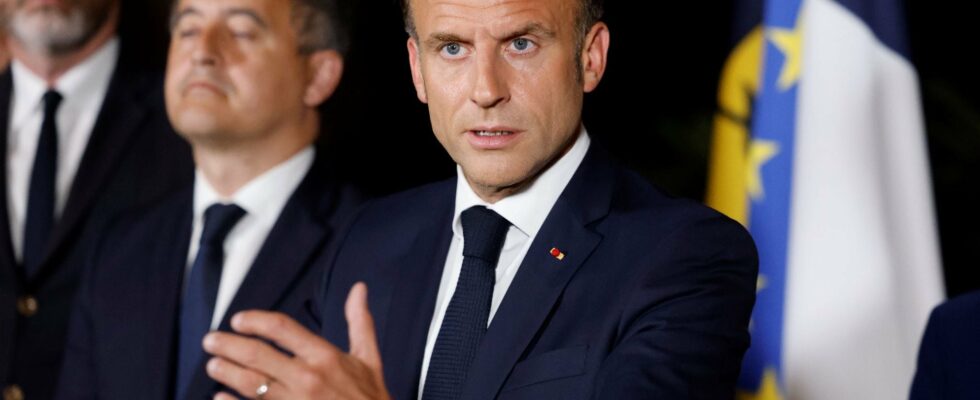Shops looted, roads blocked, cars burned, seven dead and hundreds injured. The thaw of the electoral body plunged New Caledonia into chaos. The extension of the right to vote to around 25,000 natives of the island or long-time residents, or a fifth of the electorate, is nevertheless democratic evidence. To put out the fire, Emmanuel Macron announced in a solemn tone but in panic mode, the postponement of “several weeks” of the reform. It is a safe bet that this time will be enough for the subject of the electorate to disappear from the news and that it will in fact never be put back on the table by the government. The violence of minorities therefore once again serves as a justice of the peace on a subject as essential for a democracy as that of universal suffrage… and ten days will have been enough to call into question the logical continuation of the results of three self-determination referendums.
A renunciation far from unprecedented. After ten days of transport blockages in 2008, Nicolas Sarkozy and François Fillon gave in on the reform of special regimes supported by 6 out of 10 French people in the polls: compensation granted to unions in exchange for the extension of the duration of contributions canceled the effects of the reform initially presented. Ten years later, in 2018, the abandonment of the Notre-Dame-des-Landes airport project in the face of the Zadists contradicted a campaign promise, a local referendum and 180 court decisions. Then came the interminable and costly protest of the yellow vests resulting in a new capitulation by the government: an abandonment of the increase in the carbon tax and announcements to the tune of 17 billion euros to buy social peace. The next hold-ups are known, strike notices have already been given for the period of the Olympic Games: public monopolies are shamelessly taking advantage of the celebration to serve their own interests.
It must be said that these numerous setbacks have only legitimized the practice. At the same time, they have terribly weakened our democratic system, now considered ineffective by 68% of French people according to the annual Cevipof barometer. Because, contrary to what the far left claims, it is ineffectiveness and not the absence of debate that largely explains the current democratic crisis. New Caledonia was a new example. Since 1988, debate and constant dialogue have enabled enormous progress. On the institutional level, New Caledonia – whose retention in the French Republic is strategic – benefits from a unique status and financial autonomy which allows it to collect the proceeds of taxes and duties, while receiving transfers of the State.
Enforce the choice of the majority
On an economic and social level, in 2023, the 1.68 billion euros transferred represented almost 20% of New Caledonian GDP! Between 2005 and 2021, the number of social housing has doubled. From 1998 to 2020, the share of a generation with access to the baccalaureate increased from 32.8% to 73.5%. The unemployment rate has almost been halved in thirty years and the share of Kanaks among executives has doubled. The poverty rate (19%) on the island is now comparable to that of Haute-Corse and is much lower than that of Seine-Saint-Denis (27.6%). GDP per capita has increased by 70% compared to the 2000s, it is now higher than that of mainland France excluding Île-de-France. A record that our leaders have never valued under the mocking gaze of activists from China, Azerbaijan, or Wagner…
Small compromises and big renunciations lead us today to a huge mess. Others are likely to follow tomorrow. This is why we must prefer the effectiveness of results to shock announcements, favor structural reforms and above all assume firmness when the general interest requires it. Let us keep in mind this major principle: dictatorship is easy; Democracy is a constant effort to ensure that the choice of the majority is respected.
.
